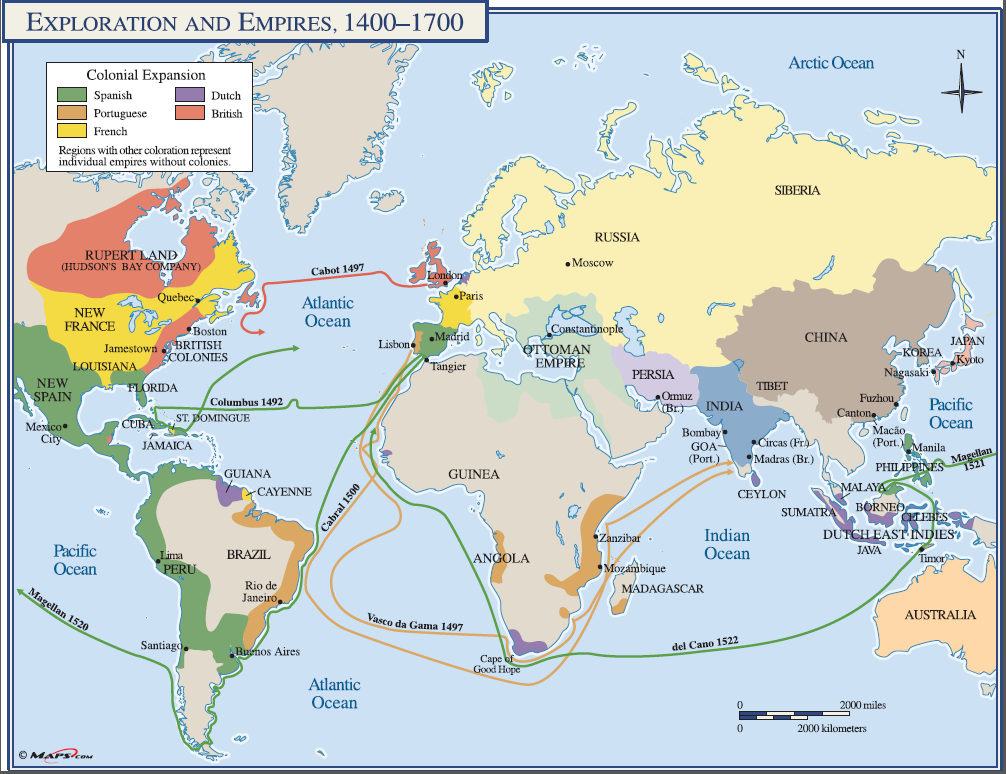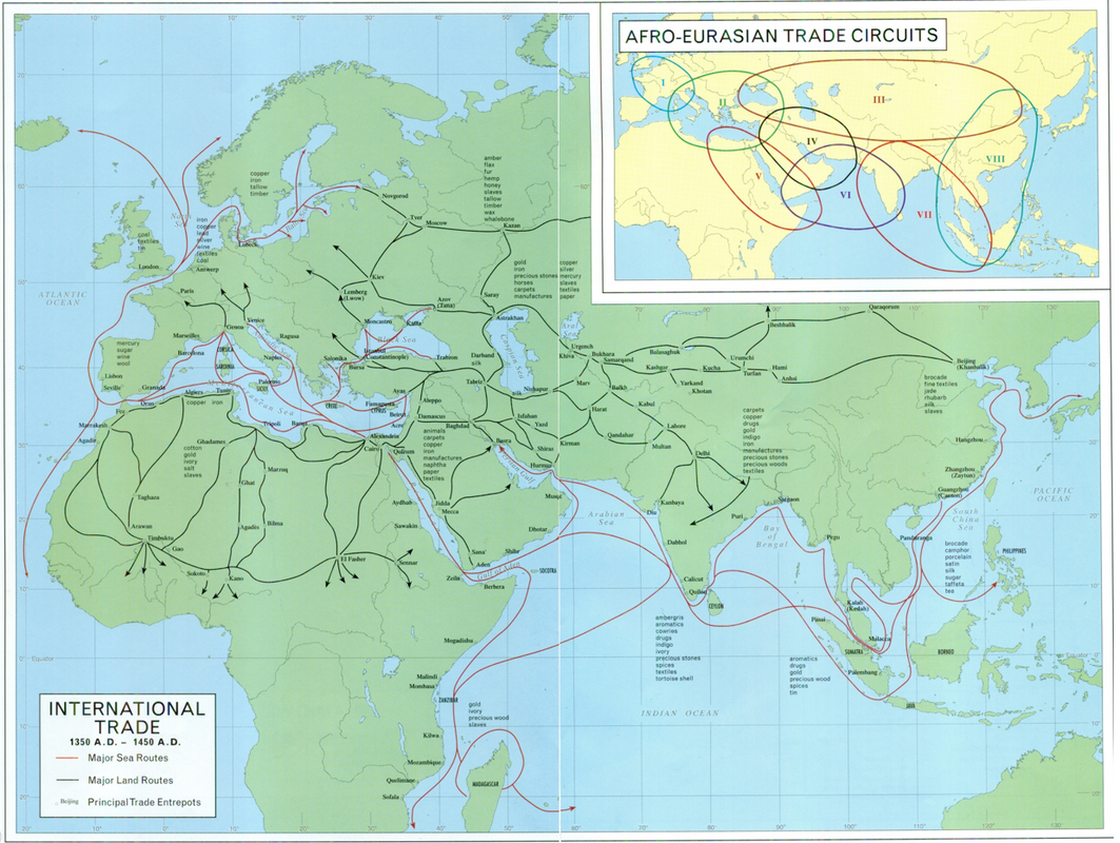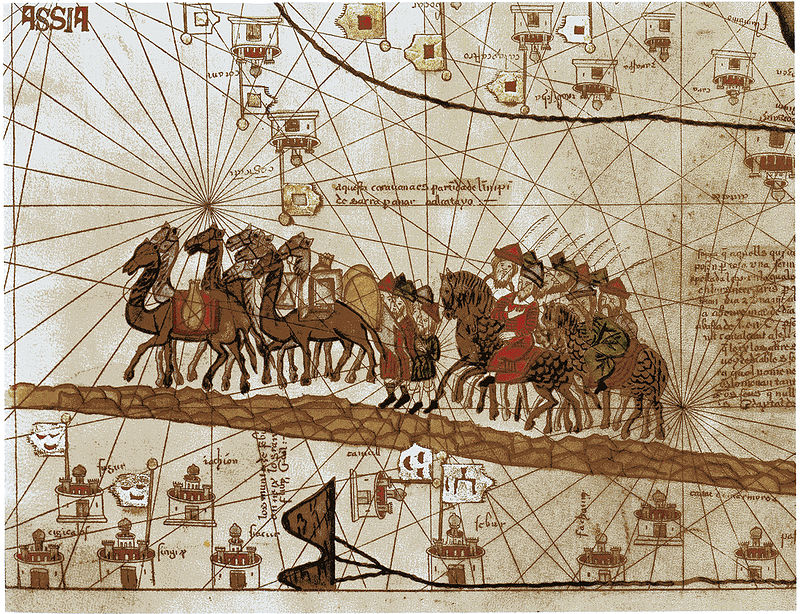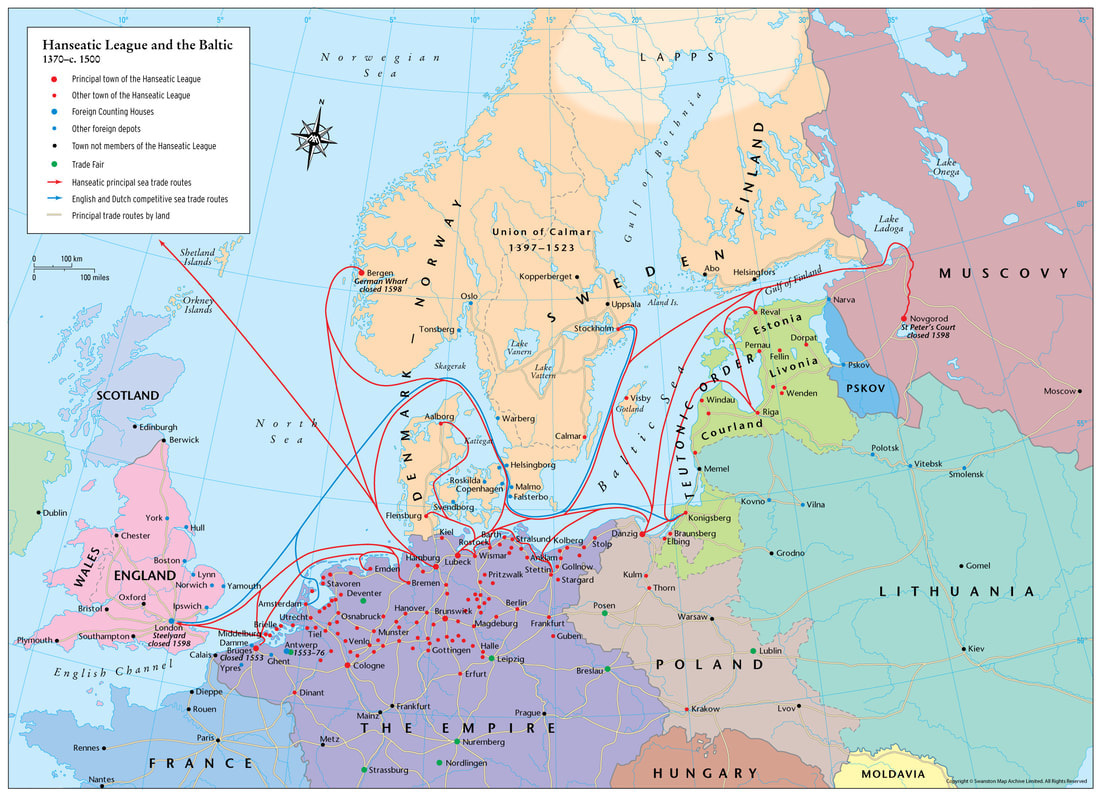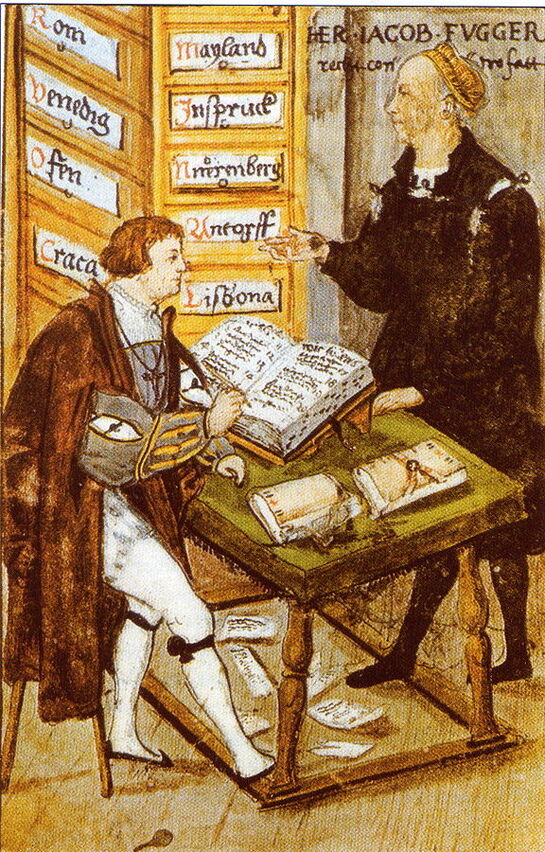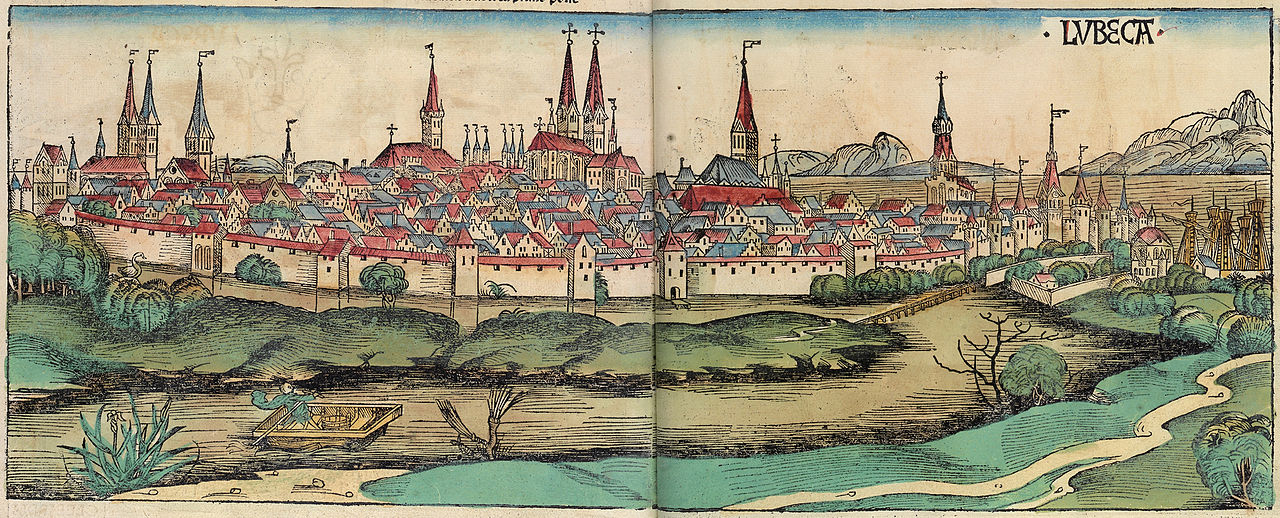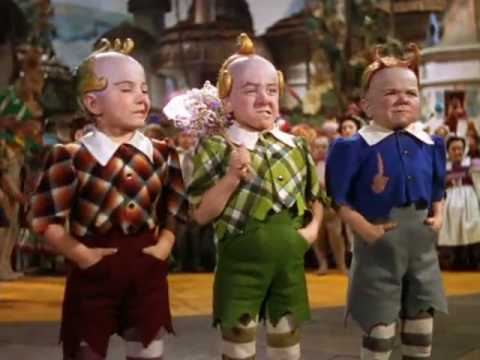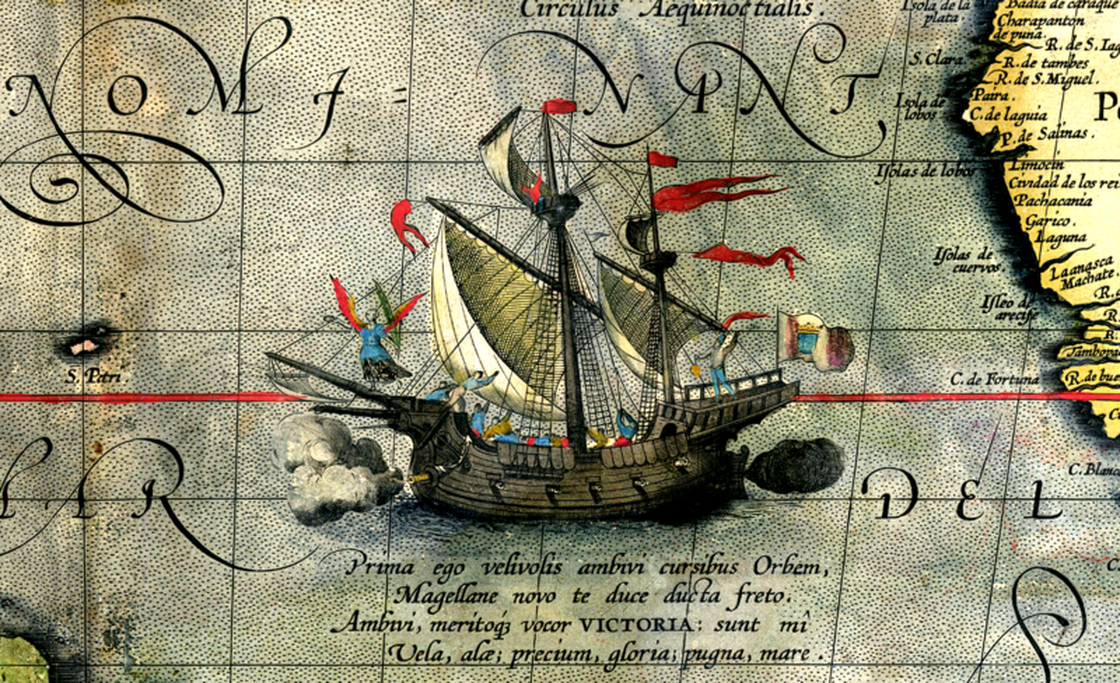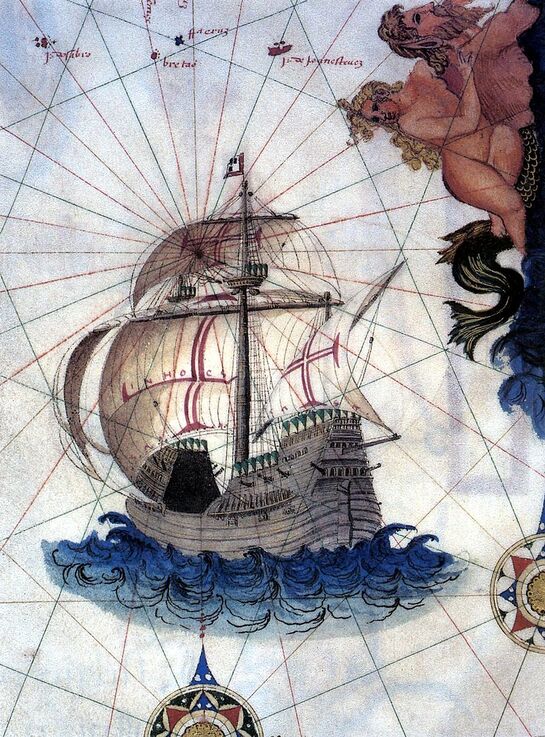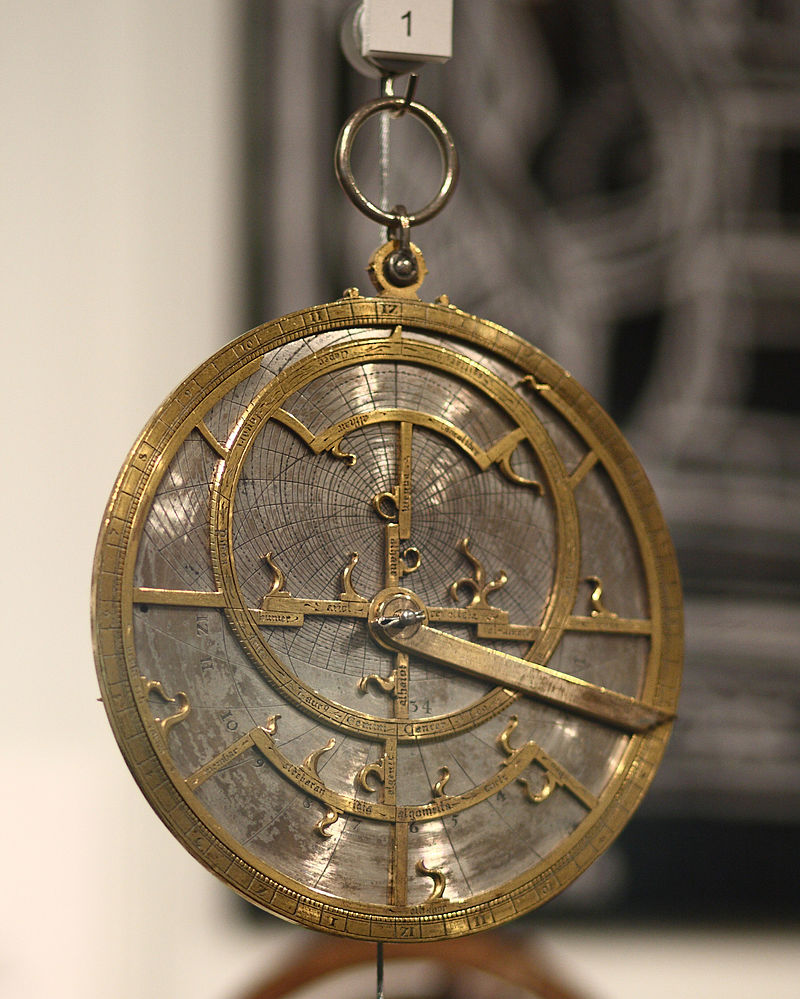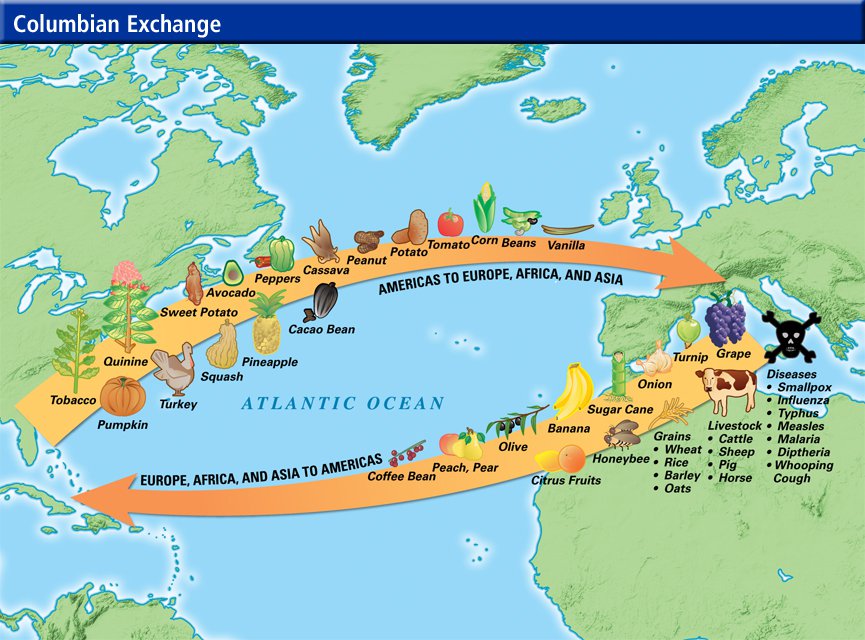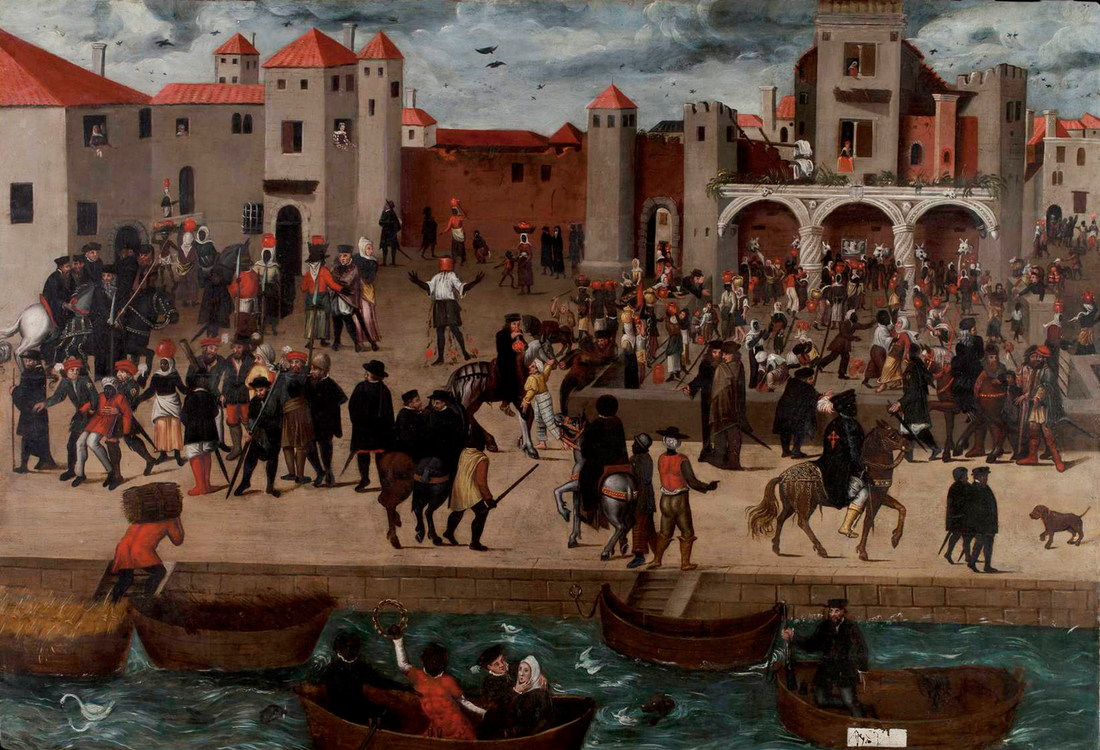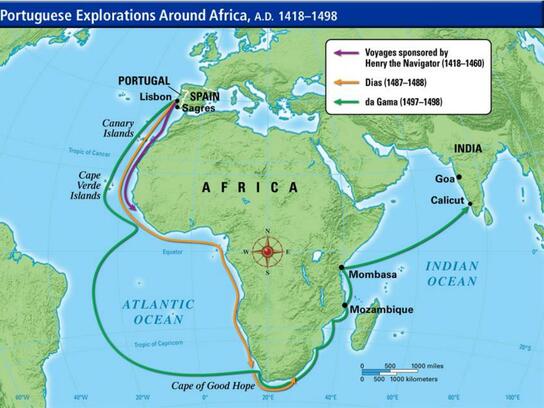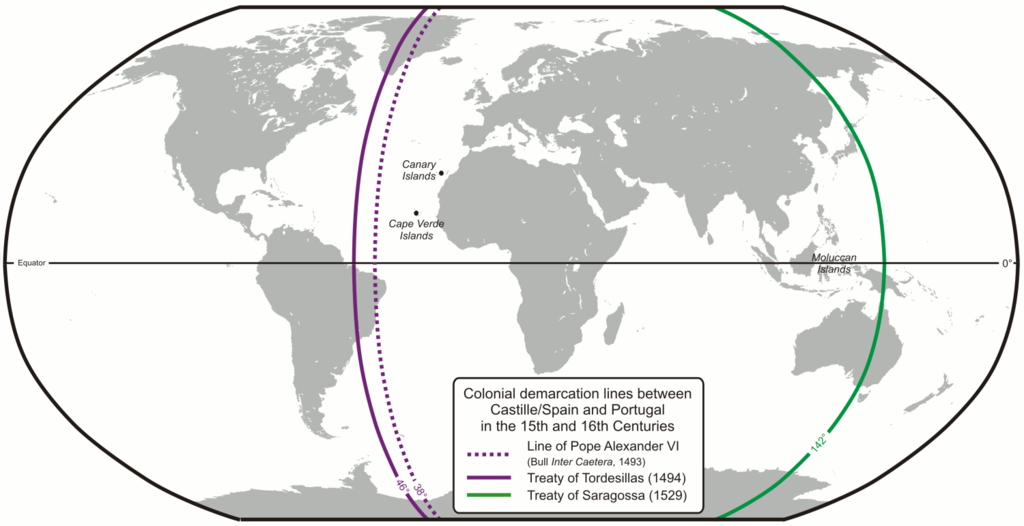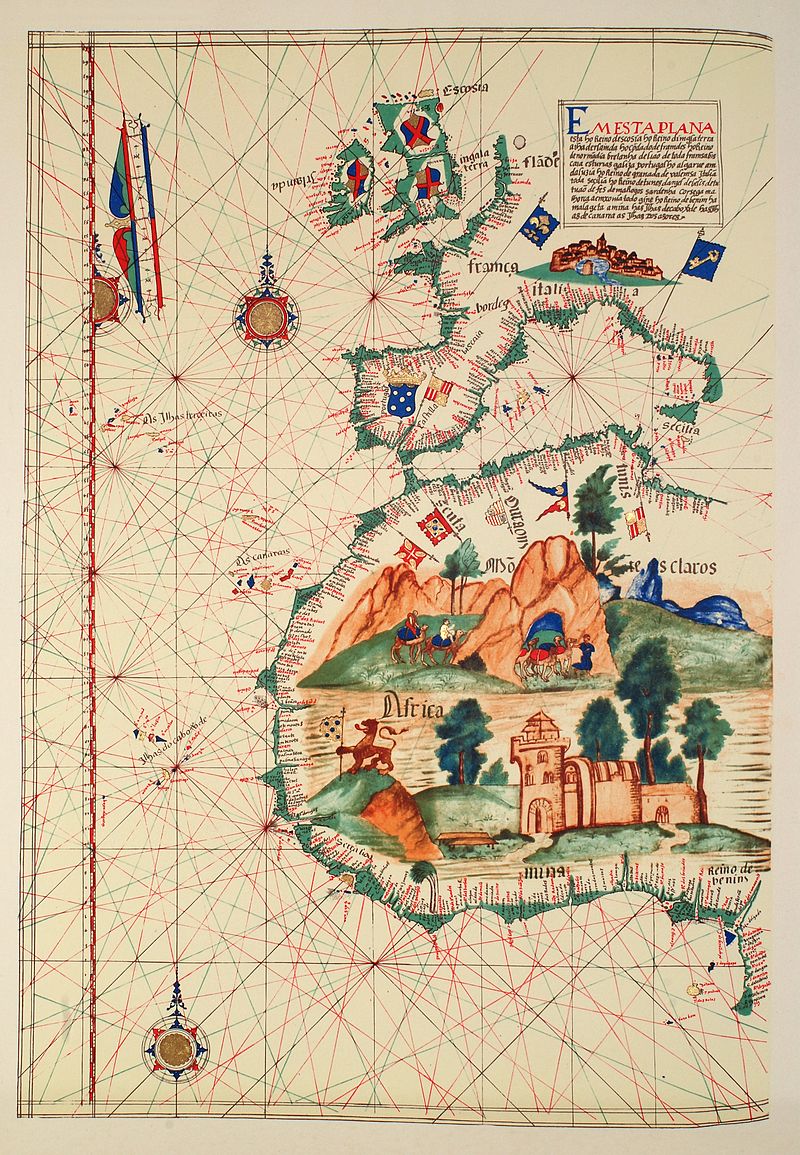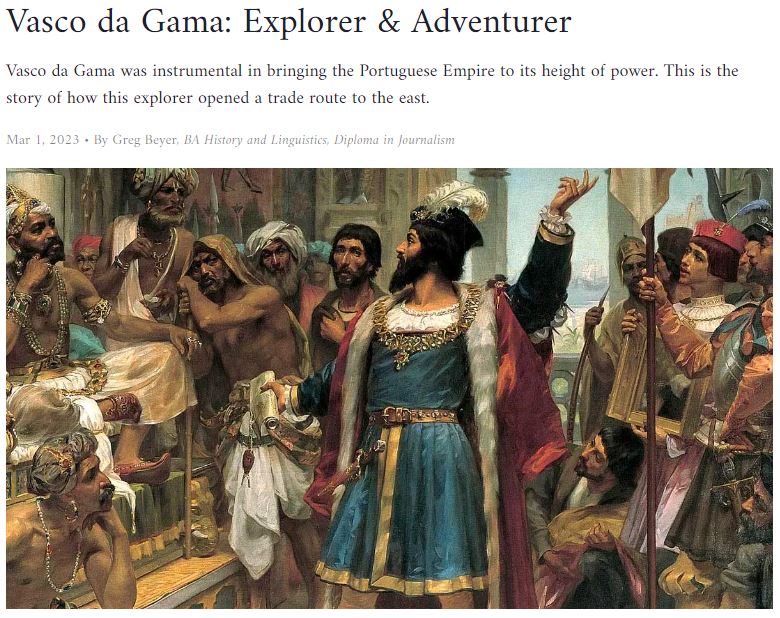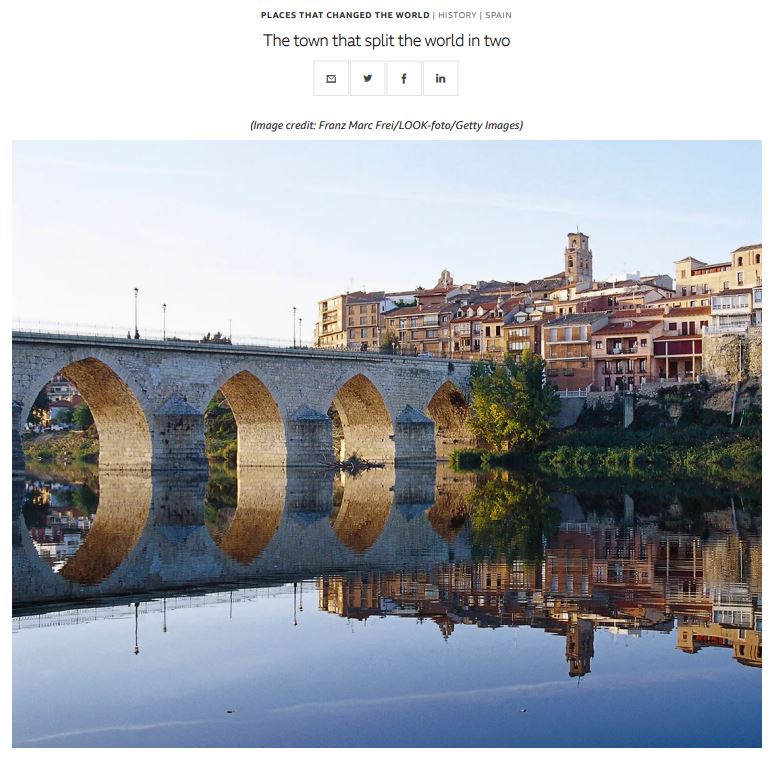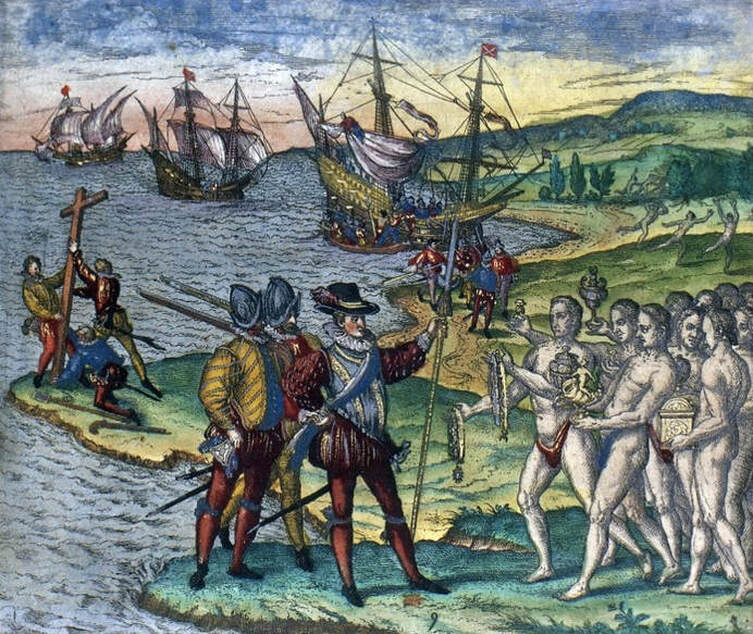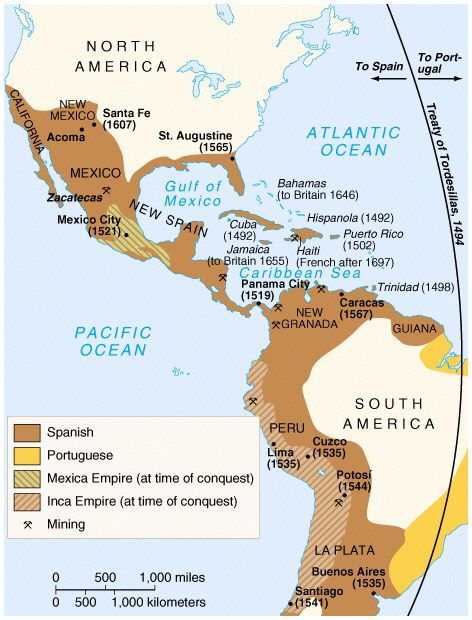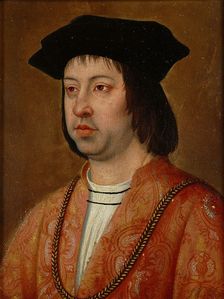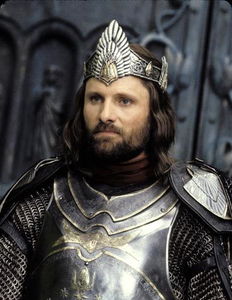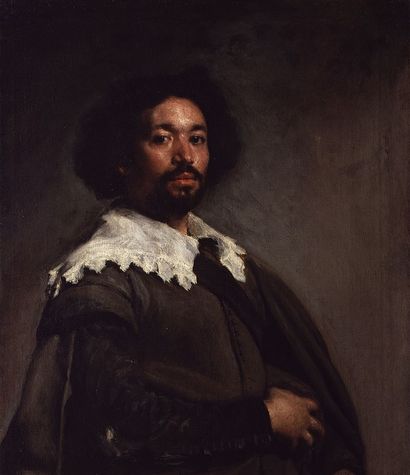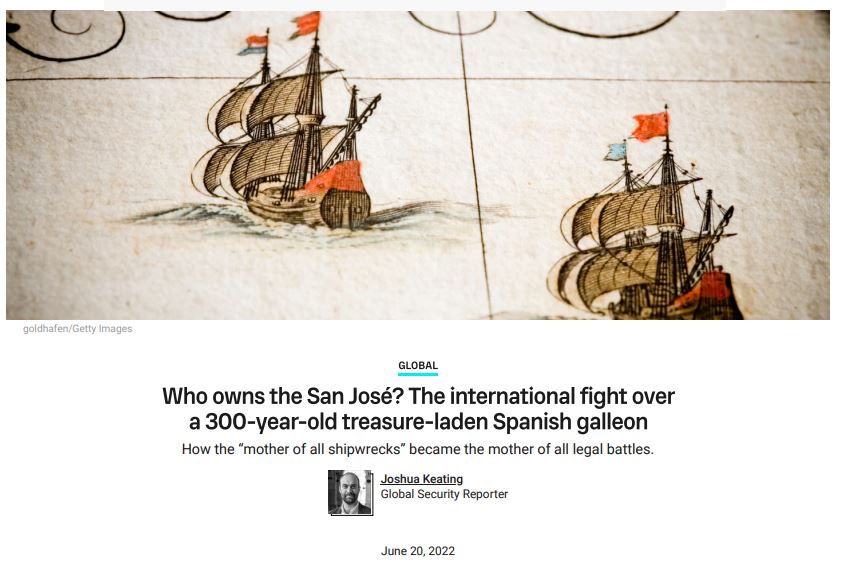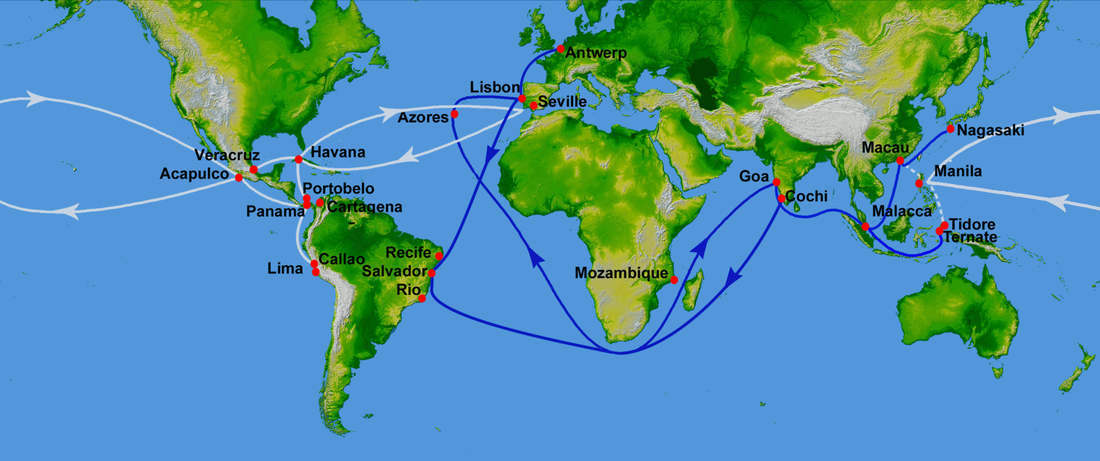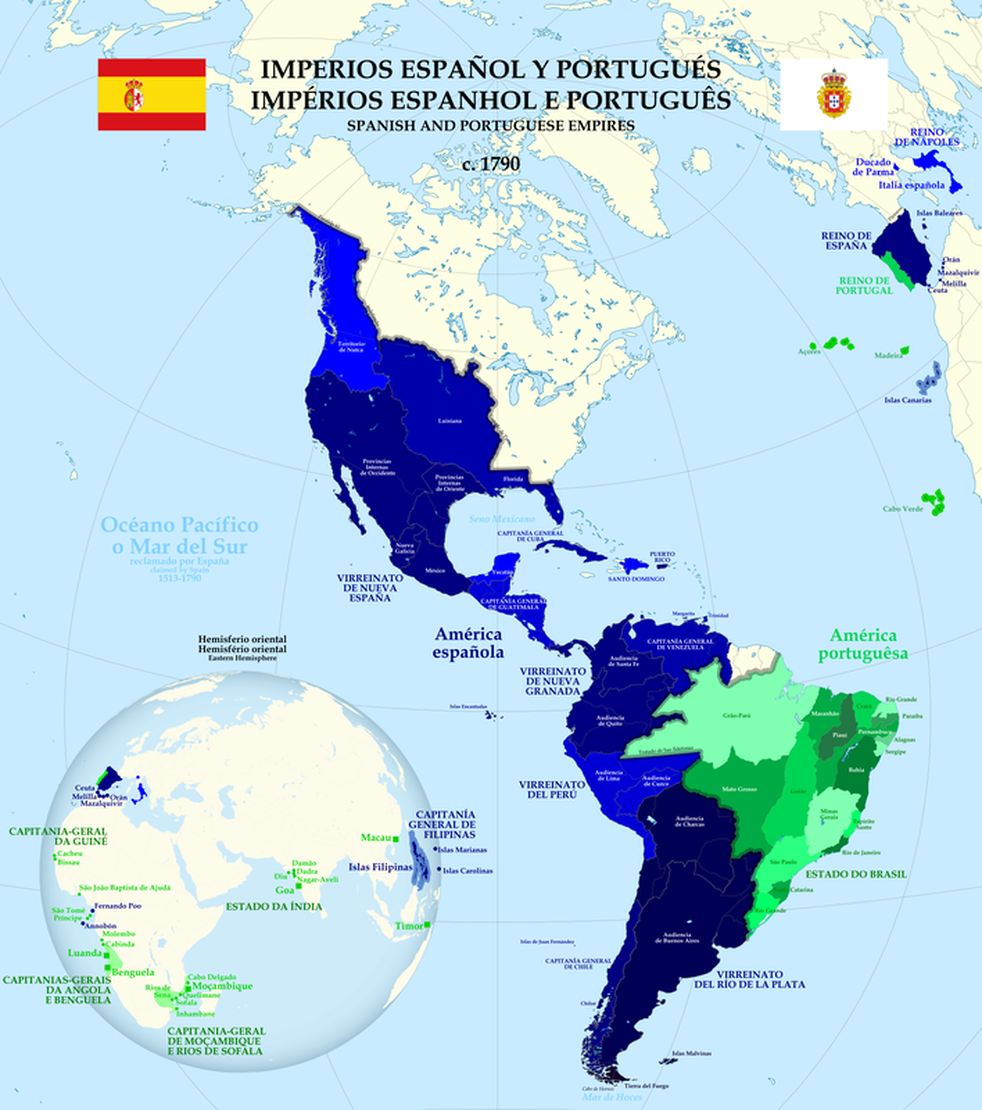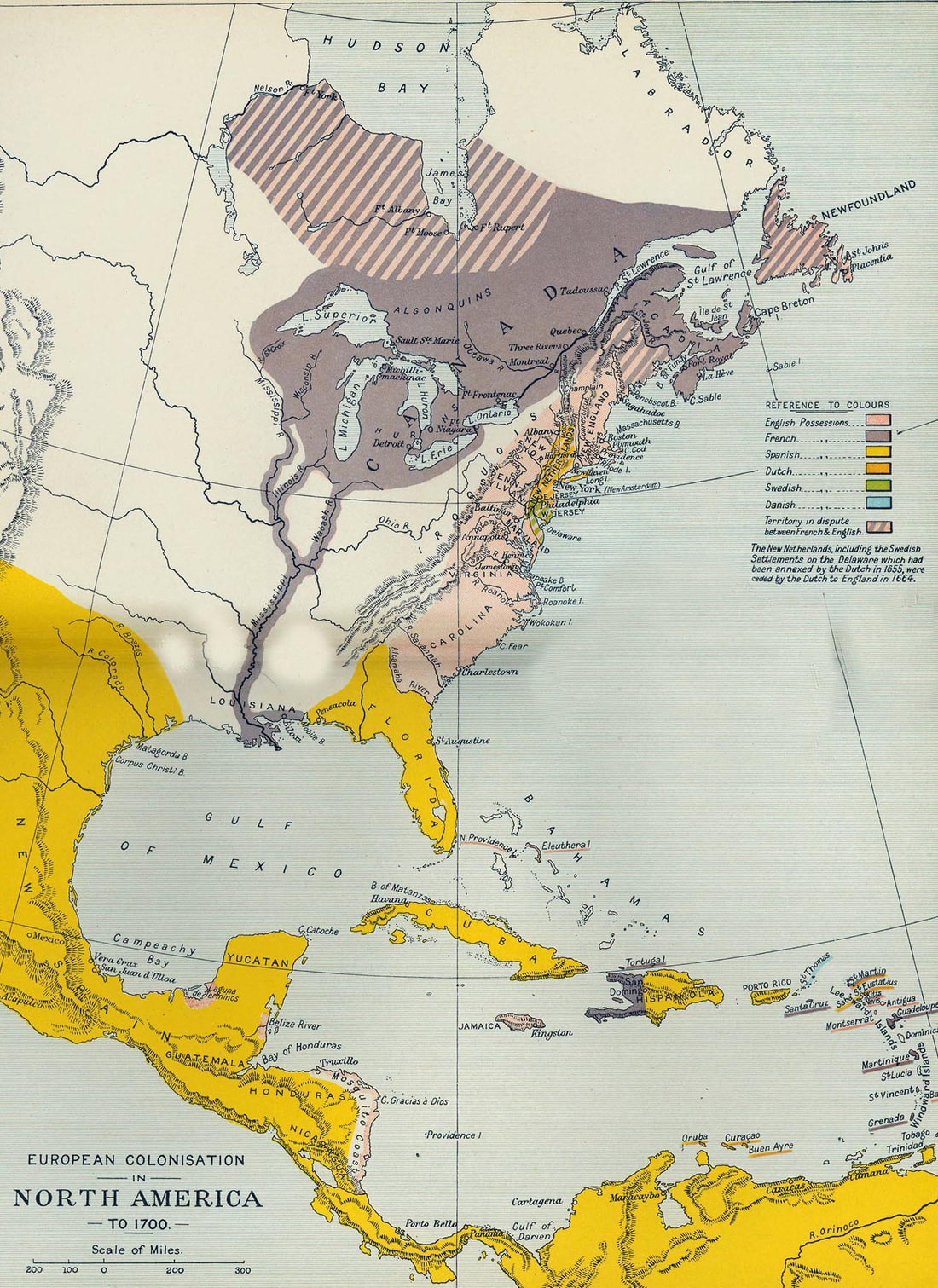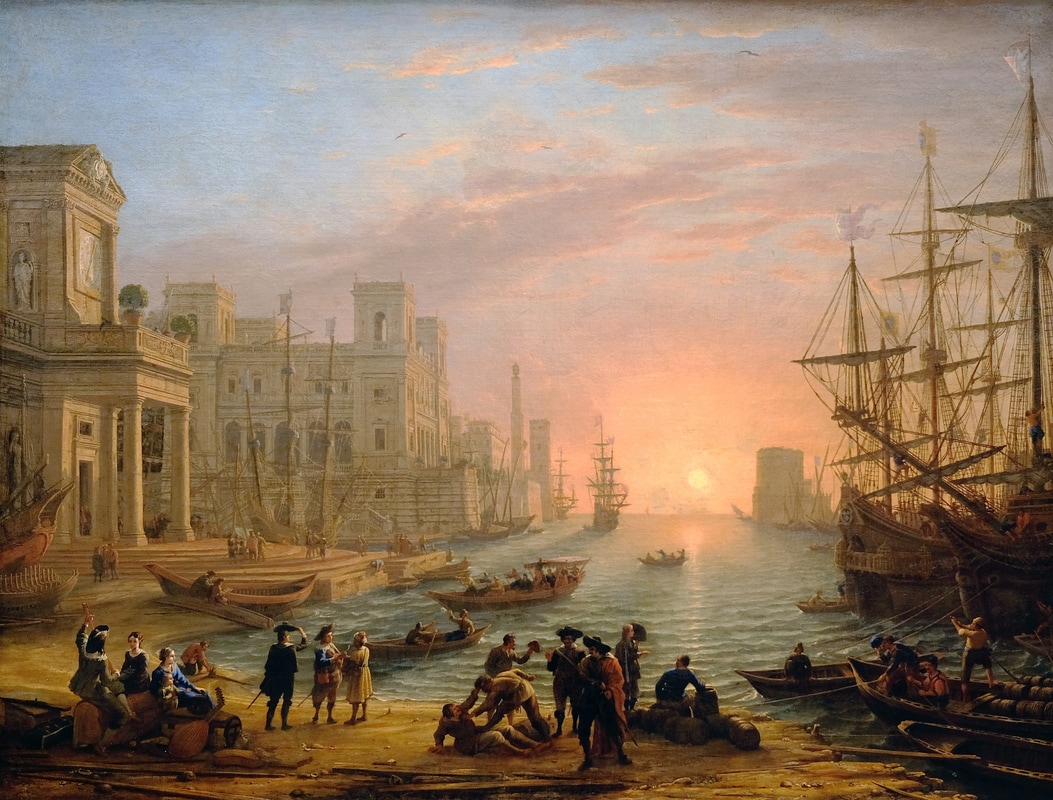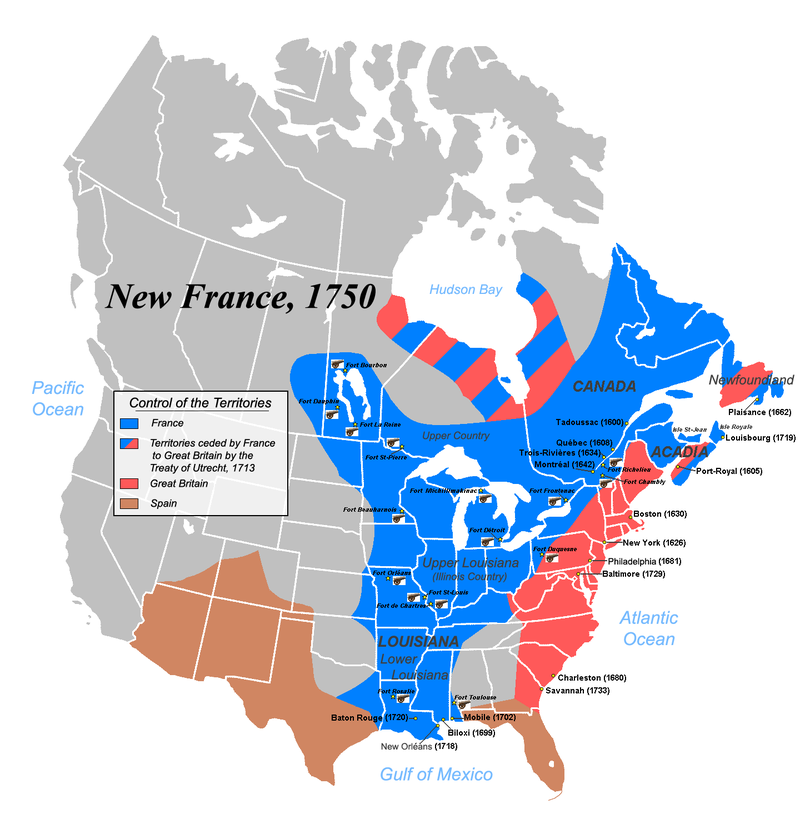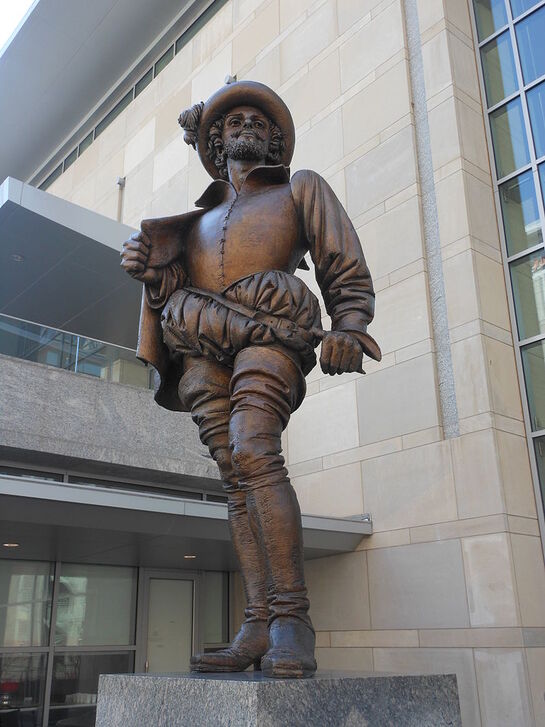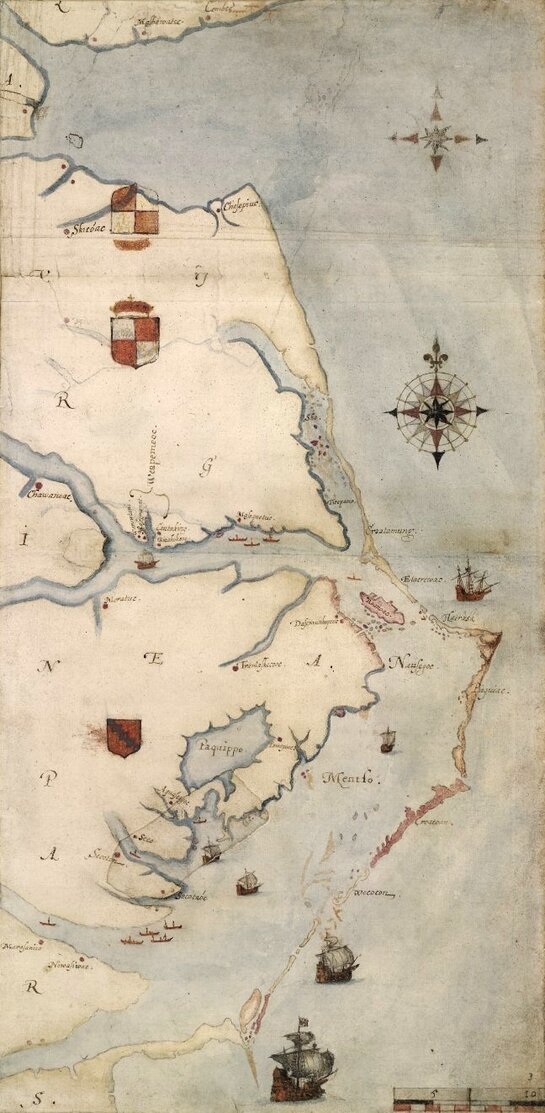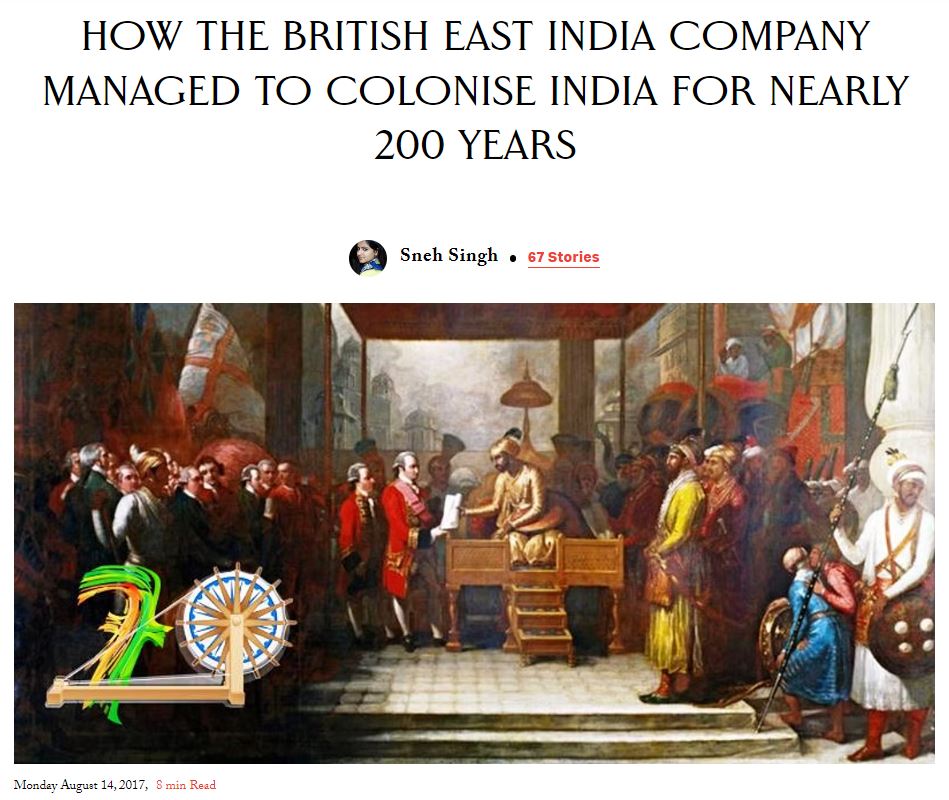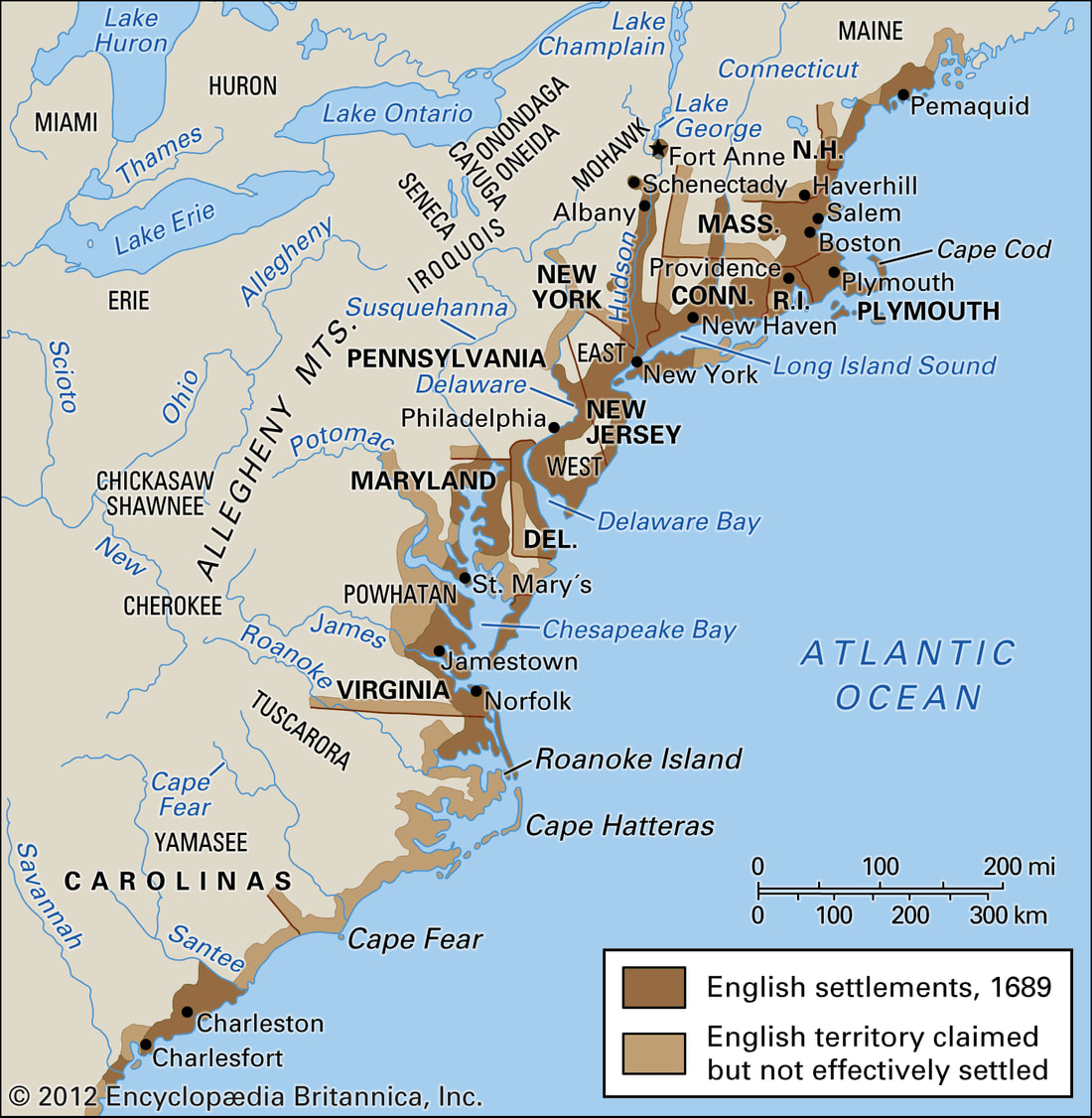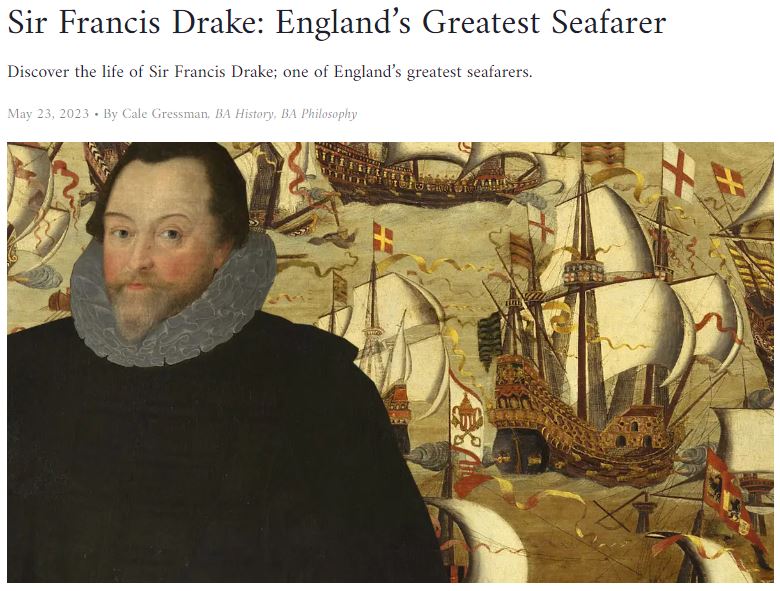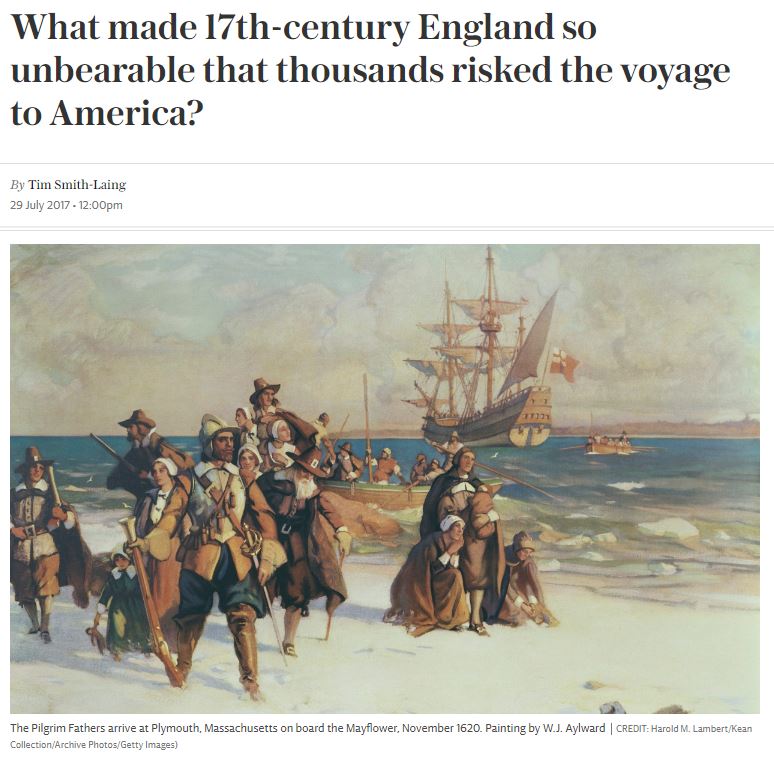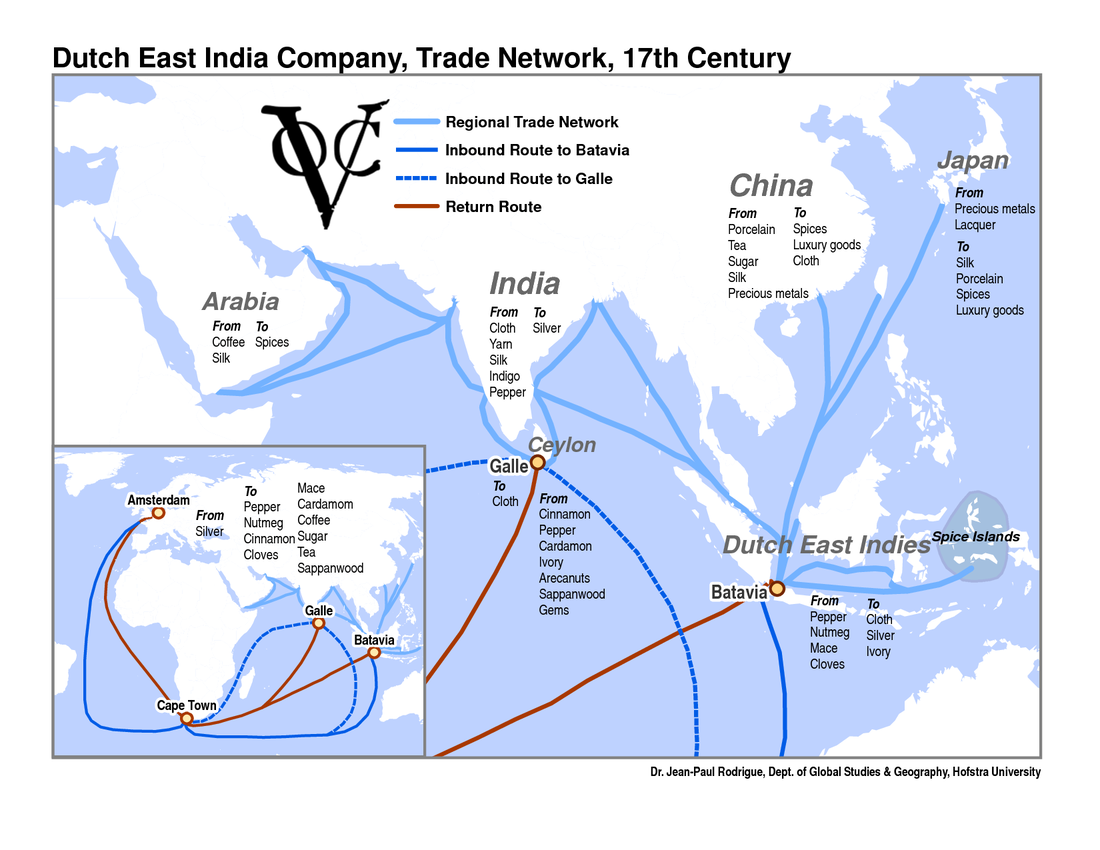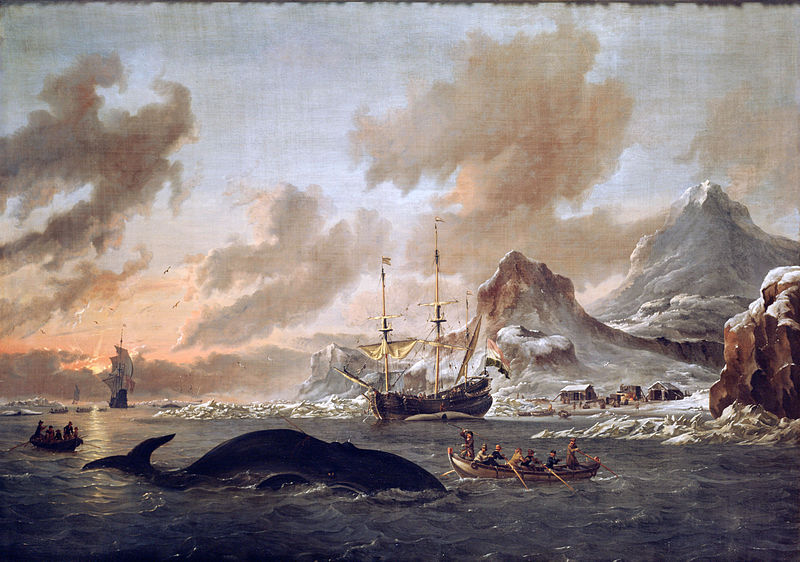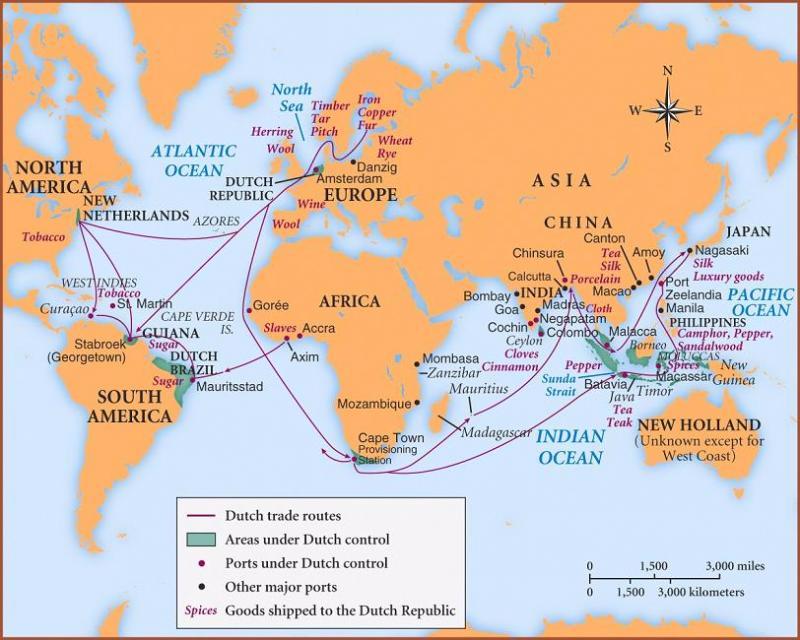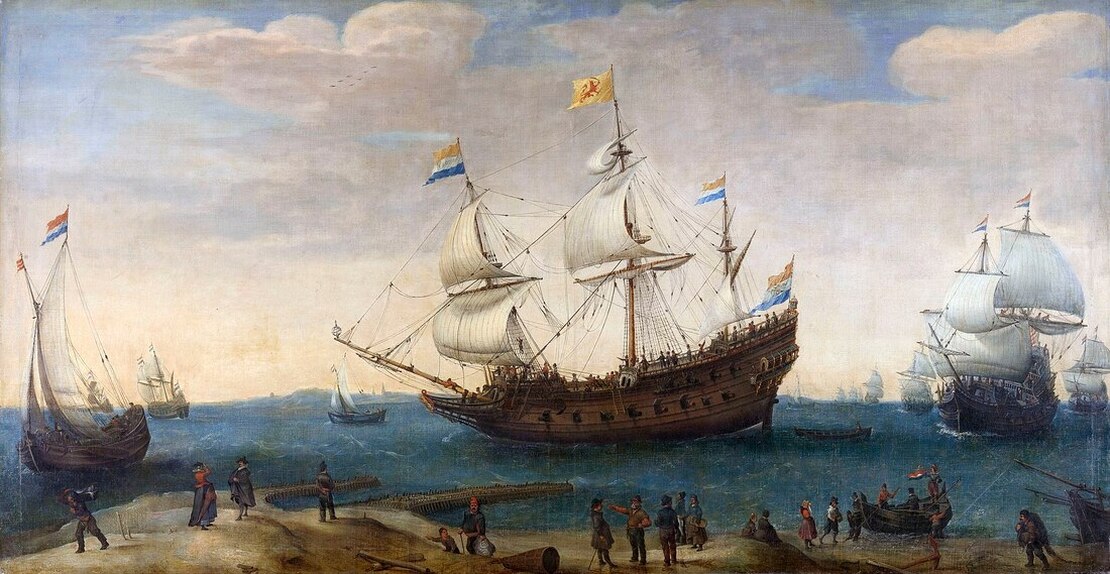From the 15th through the 17th centuries, Europeans used their mastery of the seas to extend their power in Africa, Asia, and the Americas. ... In Europe, these successes shifted economic power within Europe from the Mediterranean to the Atlantic states.
Exploration,
c. 1450-1648 CE
Contents
From the 15th through the 17th centuries, Europeans used their mastery of the seas to extend their power in Africa, Asia, and the Americas. In the 15th century, the Portuguese sought direct access by sea to the sources of African gold, ivory, and slaves. At the same time, the rise of Ottoman power in the eastern Mediterranean led to Ottoman control of the Mediterranean trade routes and increased the motivation of Iberians and then northern Europeans to explore possible sea routes to the east. The success and consequences of these explorations, and the maritime expansion that followed them, rested on European adaptation of Muslim and Chinese navigational technology as well as advances in military technology and cartography.
Political, economic, and religious rivalries among Europeans also stimulated maritime expansion. By the 17th century, Europeans had forged a global trade network that gradually edged out earlier Muslim and Chinese dominion in the Indian Ocean and the western Pacific. In Europe, these successes shifted economic power within Europe from the Mediterranean to the Atlantic states. In Asia, the Portuguese, Spanish, and Dutch competed for control of trade routes and trading stations. In the Americas, the Spanish and Portuguese led in the establishment of colonies, followed by the Dutch, French, and English. The pursuit of colonies was sustained by mercantilist economic theory, which promoted government management of economic imperatives and policies.
The creation of maritime empires was also animated by the religious fervor sweeping Europe during the Catholic and Protestant reformations. Global European expansion led to the conversion of indigenous populations in South and Central America, to an exchange of commodities and crops that enriched European and other civilizations that became part of the global trading network, and eventually to encounters and relationships that would have profound effects on Europe. The Columbian Exchange also unleashed several ecological disasters—notably the death of vast numbers of the Americas’ population in epidemics of European diseases, such as smallpox and measles, against which the native populations had no defenses. The new Atlantic trading system led to the establishment of the plantation system in the American colonies and the vast expansion of the African slave trade.
Source: https://apcentral.collegeboard.org/pdf/ap-european-history-course-and-exam-description.pdf
Political, economic, and religious rivalries among Europeans also stimulated maritime expansion. By the 17th century, Europeans had forged a global trade network that gradually edged out earlier Muslim and Chinese dominion in the Indian Ocean and the western Pacific. In Europe, these successes shifted economic power within Europe from the Mediterranean to the Atlantic states. In Asia, the Portuguese, Spanish, and Dutch competed for control of trade routes and trading stations. In the Americas, the Spanish and Portuguese led in the establishment of colonies, followed by the Dutch, French, and English. The pursuit of colonies was sustained by mercantilist economic theory, which promoted government management of economic imperatives and policies.
The creation of maritime empires was also animated by the religious fervor sweeping Europe during the Catholic and Protestant reformations. Global European expansion led to the conversion of indigenous populations in South and Central America, to an exchange of commodities and crops that enriched European and other civilizations that became part of the global trading network, and eventually to encounters and relationships that would have profound effects on Europe. The Columbian Exchange also unleashed several ecological disasters—notably the death of vast numbers of the Americas’ population in epidemics of European diseases, such as smallpox and measles, against which the native populations had no defenses. The new Atlantic trading system led to the establishment of the plantation system in the American colonies and the vast expansion of the African slave trade.
Source: https://apcentral.collegeboard.org/pdf/ap-european-history-course-and-exam-description.pdf
Banking and Trade
Objective: Explain European commercial and agricultural developments and their social and economic effects from 1450 to 1648.
- Innovations in banking and finance promoted the growth of urban financial centers and a money economy.
- The price revolution contributed to the accumulation of capital and the expansion of the market economy through the commercialization of agriculture, which benefited large landowners in western Europe.
- Migrants to the cities challenged the ability of merchant elites and craft guilds to govern, and strained resources.
- Economic change produced new social patterns, while traditions of hierarchy and status continued.
- The growth of commerce produced a new economic elite, which related to traditional landholding elites in different ways in Europe’s various geographic regions.
Late Medieval Eurasian Trade
|
A close up of the Catalan Atlas depicting Marco Polo travelling to the East during the Pax Mongolica.
|
Financial Institutions
|
Jakob Fugger was one of the wealthiest individuals in history, rivaling John D. Rockefeller and Andrew Carnegie. The file cabinet shows European cities where the Fugger Bank did business. (1517)
|
Lübeck, Germany, hub of the Hanseatic trading league in 1493
New Economic Elites
|
We represent the Lollipop Guild, the Lollipop Guild, the Lollipop Guild.
|
|
Banking and Trade in Early Modern Europe Quizlet (comprehensive)
Banking and Trade in Early Modern Europe Quizlet (abridged)
|
The First Global Age
Objectives:
- Explain the motivations for and effects of European exploration and expansion from 1450 to 1648.
- Explain the technological factors that facilitated European exploration and expansion from 1450 to 1648.
- Explain the causes for and the development of the slave trade.
The Age of Exploration: Crash Course European History #4
Europeans haven't been great at staying put in Europe. As human beings do, the people of Europe were very busy traveling around to trade, to spread religion, and in a lot of cases to try and conquer other people. In the 15th and 16th centuries, Europeans developed a bunch of tools and techniques that would allow them to travel around the world, in numbers and force heretofore unseen on the planet. And a lot of the results weren't great for the people who already lived in the places Europeans were "visiting."
Victoria, the single ship to have completed the first world circumnavigation. (Detail from Maris Pacifici by Ortelius, 1589.)
- European states sought direct access to gold, spices, and luxury goods to enhance personal wealth and state power.
- The rise of mercantilism gave the state a new role in promoting commercial development and the acquisition of colonies overseas.
- Christianity was a stimulus for exploration as governments and religious authorities sought to spread the faith, and for some it served as a justification for the subjugation of indigenous civilizations.
- The exchange of goods shifted the center of economic power in Europe from the Mediterranean to the Atlantic states and brought the latter into an expanding world economy.
- The exchange of new plants, animals, and diseases—the Columbian Exchange—created economic opportunities for Europeans.
- Europe’s colonial expansion led to a global exchange of goods, flora, fauna, cultural practices, and diseases, resulting in the destruction of some indigenous civilizations, a shift toward European dominance, and the expansion of the trade in enslaved persons.
- Europeans expanded the trade of enslaved Africans in response to the establishment of a plantation economy in the Americas and demographic catastrophes among indigenous peoples.
|
A Portuguese carrack as depicted in a map made in 1565.
French astrolabe, 1400 CE
|
|
Sailing Technology and the First Global Age Quizlet (comprehensive)
Sailing Technology and the First Global Age Quizlet (abridged)
|
Exploration and Empire
Objectives:
- Explain the motivations for and effects of European exploration and expansion from 1450 to 1648.
- Explain how and why trading networks and colonial expansion affected relations between and among European states.
- Explain the social, cultural, and economic impacts of European colonial expansion and development of trade networks.
- European states sought direct access to gold, spices, and luxury goods to enhance personal wealth and state power.
- Europeans established overseas empires and trade networks through coercion and negotiation.
Expansion and Consequences: Crash Course European History #5
European exploration had a lot of side effects. When the Old World and the New World began to interact, people, wealth, food, animals, and disease began to flow in both directions. In the New World, countless millions were killed by smallpox, measles, and other Old-World diseases. Old World animals changed life in the New World irrevocably, and the extraction of wealth and resources from the Americas ultimately contributed to the development of the Atlantic Slave Trade. So, it was an exchange with a lot of downside, especially for non-Europeans.
Portuguese
The King's Fountain (c. 1570) depicts early globalization in Lisbon, Portugal. Trade goods from Japan and India are present. Around 10% of Lisbon's population had African ancestry found in all social classes. There are both black and white slaves present. Note the upper-class African knight in the lower right corner.
|
Lines dividing the non-Christian world between Castile and Portugal
nautical chart of Portuguese cartographer Lázaro Luís, 1563
|
article: Vasco da Gama: Explorer & Adventurer
Article: The town that split the world in two
|
Spanish
White represents the route of the Manila Galleons in the Pacific and the flota in the Atlantic. Blue represents Portuguese routes.
|
Portuguese and Spanish Exploration and Empire (comprehensive)
Portuguese and Spanish Exploration and Empire (abridged)
|
French
Seaport at sunset (1639) by French painter Claude Lorrain
|
English
|
Virginea Pars map depicting the location of the Roanoke colony in 1585 along the coastline of present-day North Carolina.
|
|
Dutch
|
Dutch whalers near Spitsbergen (1690) by Abraham Storck
|
A number of East Indiamen off the Coast (The Mauritius and other East Indiamen Sailing out of the Marsdiep) (c. 1630) by Hendrick Cornelisz Vroom
|
French, English, and Dutch Exploration and Empire (comprehensive)
French, English, and Dutch Exploration and Empire (abridged)
|
